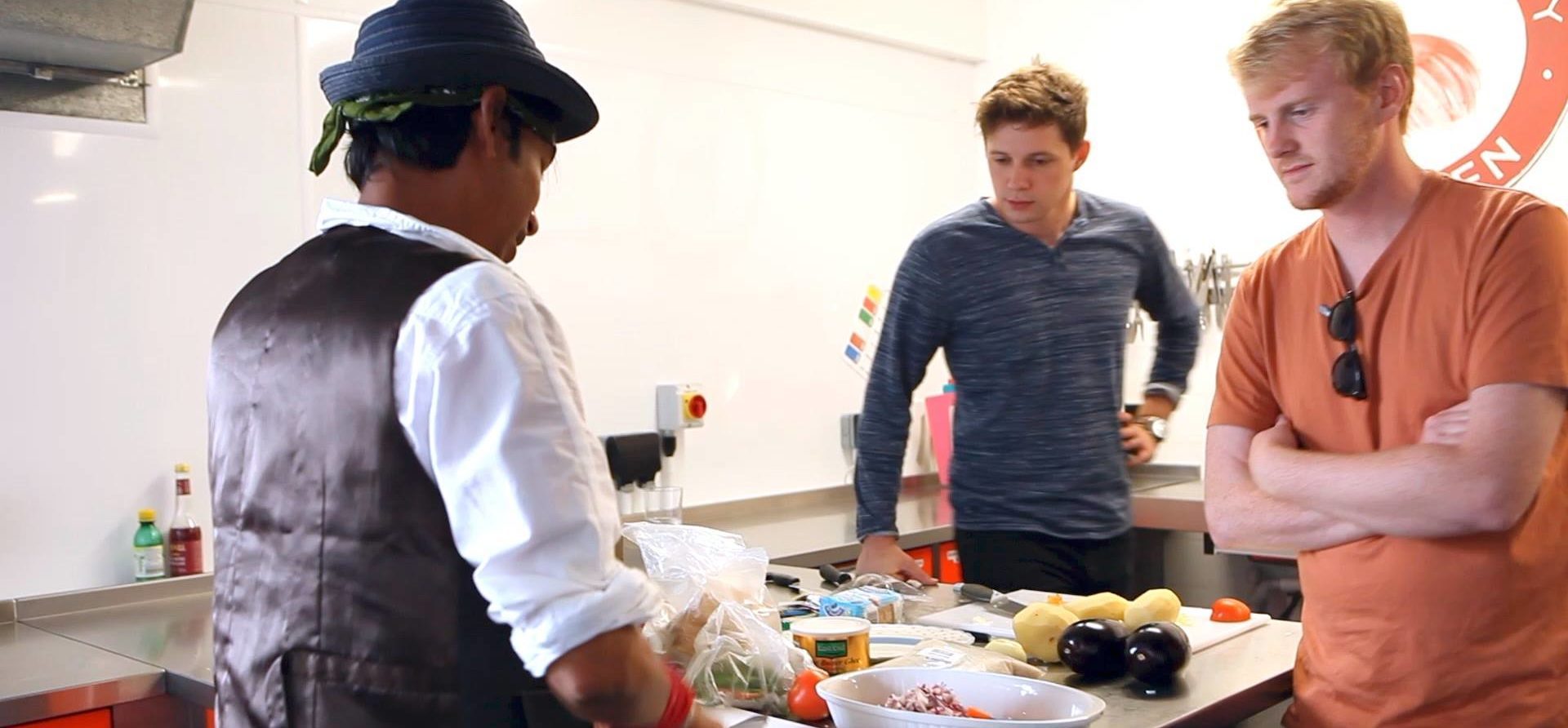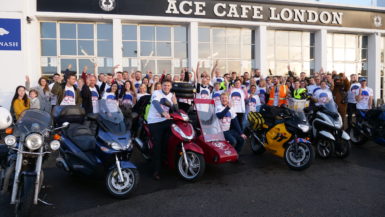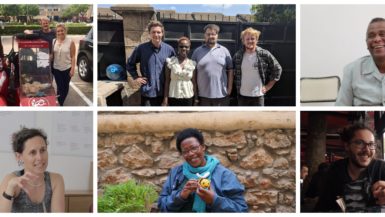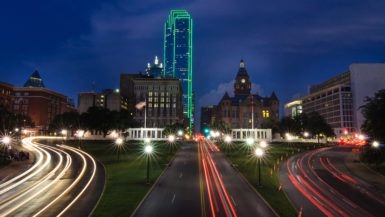A few weeks ago we met Mo. Mo is a hilarious, stylish guy in his 30’s. He likes fashion, watching Bollywood and most of all cooking. He’s a survivor of modern slavery in the UK.
There are currently estimated to be 13,000 people living in modern slavery in the UK. They go unseen, forced into working for little or no pay in all areas of our society. 13,000 people is largely said to be just the tip of the iceberg and recently the NCA stated that modern slavery is likely to exist in every major town and city in the country. We wanted to get an idea of exactly what it means to be in modern slavery in the UK so we reached out to Unseen UK to see if they could introduce us to somebody who had survived it. Their response: “We’ve asked, and Mo would love to cook for you guys.”
Never known to turn down a meal we jumped at the chance and met Mo in a community kitchen.
At first Mo was a fairly reserved kind of guy and being kind of nerdy and awkward ourselves it was polite handshakes and smiles all round. Then we got around to the cooking. In true Ready. Steady. Cook. fashion Mo turned out his bag with a grin that would rival Ainsley’s himself. From this point on Mo was a different a kind of guy. He was completely at home in the kitchen. Dicing, chopping, shaking, stirring: Mo controlled the kitchen like no man you’ve ever seen. He did it with such certainty and flair – it was like watching a true pro at work.
Mo uses cooking as a form of escapism. He loves to cook and said that when he cooks he feels like he’s singing and dancing. We chatted to him for a couple of hours while he magnificently constructed a slow cooked lamb curry complete with fried aubergine and pilau rice. Mo told us all about himself. All about what he did in his spare time but mainly about how much he loved to cook and how his dream was to one day open a restaurant of his own. The curry was genuinely out of this world and when Mo does finally open his restaurant we’ll be the first through the door.
Meet Mo: the joker, the chef.
Mo also talked to us about his life and how he had come to be living in a safe house in the South West with Unseen.
Originally from Myanmar, Mo’s family had to flee to Bangladesh when he was just 6. They were refugees, forced to run from the persecution of the Myanmar Military who were described by the UN as carrying out ethnic cleansing in the country. Mo’s salvation in Bangladesh was short lived as he was tossed into a refugee camp with his family which he describes as a prison camp. He told us of the awful conditions people in the camp suffered which included forced labour, a lack of food and torture. Anyone who tried to leave was shot, but at age 14, Mo decided it was worth the risk and fled the camp.
After being forced to flee the camp Mo found himself in Bangladesh illegally. Being there illegally made life hard. It meant that he had no official identification to use to get good work. But being the charismatic, quick-witted guy that he is, Mo managed to hustle his way through life in Bangladesh and by his twenties he was living a decent life and making good money as a model.
Still though, Mo was living there illegally and constantly looking over his shoulder. Being there without identification also meant that Mo had been unable to go back to the camp and see his family who he had left behind when he was 14. If he went back without official identification he would be at risk of being deported back to Myanmar or thrown back in to the camp he had escaped.
One-day Mo got an offer. An offer too good to refuse: good work and a passport – a British one. Two people approached Mo and told him how nice people were in the UK and that in the UK they would accept him as migrant and give him a British passport. How could he resist? That passport would be official documentation and his ticket to getting back to find his family.
Mo committed to going to the UK.
After a month in the back of a lorry. Mo was trafficked in to slavery, working in a kitchen in London. He wasn’t paid for his work and was just given food to survive. He was completely trapped. Eventually, Mo escaped the kitchen but then ended up being enslaved on building sites in other parts of London. Eventually, someone put him on touch with Unseen who pulled him out of slavery and put him up in their safe house.
Unseen are helping Mo through the requirements of getting the right paperwork to be in the UK so that he can one day find his family and hopefully open that restaurant.
Mo says he hasn’t stopped running his whole life. Mo is not his real name. Even in this blog we have had to hide his identity as he’s at risk of retaliation from the people who trafficked him here. Mo is now in a kind of limbo while he waits for the Home Office to process his application. He’s been waiting for around a year. Meanwhile he can’t work or do anything to try and find his family.
Thanks to Unseen though he is safe and able to do what he loves – cook. Mo currently spends his time waiting for news on his application and volunteering as a cook in a community kitchen for refugees.
Meet Mo: the survivor of modern slavery.
Meet Mo: the joker, the chef | Meet Mo: the survivor of modern slavery.
To help people like Mo – look out for the signs of modern slavery:
- Is the victim in possession of a passport, identification or travel documents? Are these documents in possession of someone else?
- Does the victim act as if they were instructed or coached by someone else? Do they allow others to speak for them when spoken to directly?
- Was the victim recruited for one purpose and forced to engage in some other job? Was their transport paid for by facilitators, whom they must pay back through providing services?
- Does the victim receive little or no payment for their work? Is someone else in control of their earnings?
- Was the victim forced to perform sexual acts?
- Does the victim have freedom of movement?
- Has the victim or family been threatened with harm if the victim attempts to escape?
- Is the victim under the impression they are bonded by debt, or in a situation of dependence?
- Has the victim been harmed or deprived of food, water, sleep, medical care or other life necessities?
- Can the victim freely contact friends or family? Do they have limited social interaction or contact with people outside their immediate environment?
To find out more visit www.unseenuk.org.






Post on the board